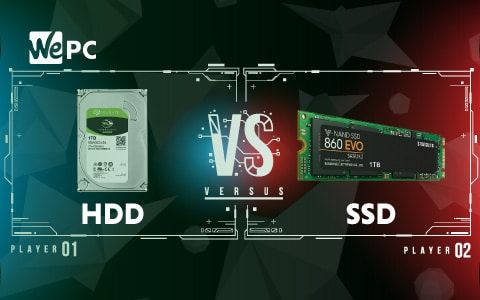
Gaming has come a long way since the early days of pixelated graphics and simple gameplay mechanics. Advances in technology have not only revolutionized the way games are developed but have also drastically improved the gaming experience for enthusiasts. One area that has seen significant progress is gaming storage, with Solid-State Drives (SSDs) now posing tough competition to traditional Hard Disk Drives (HDDs). In this article, we will explore the evolution of gaming storage and compare the benefits and drawbacks of SSDs and HDDs.
The Rise of SSDs
As games became more visually complex and demanding, the limitations of HDDs started to become apparent. The slow read and write speeds of traditional hard drives led to frustratingly long loading times, occasional stutters, and overall slower performance. Enter Solid-State Drives (SSDs): a faster, more reliable, and efficient alternative.
SSDs utilize flash memory to store data, eliminating the need for mechanical parts found in HDDs. This results in lightning-fast read and write speeds, reducing loading times significantly. Games installed on SSDs benefit from quicker boot times, seamless transitions between levels, and minimal lag, providing players with a smoother and more immersive experience. Furthermore, SSDs are also more resistant to physical damage due to their lack of moving parts, giving gamers peace of mind when transporting their devices.
The Advantages of HDDs
While SSDs have gained popularity in the gaming community, HDDs still hold their ground with some advantages of their own. One such advantage is the cost per gigabyte. HDDs provide significantly higher storage capacities at a lower cost compared to their SSD counterparts. Gamers who have vast game libraries might find HDDs more suitable for their storage needs, as SSDs can be pricier for larger capacities.
Another advantage of HDDs is their longevity. SSDs have a limited number of write cycles before their performance starts to deteriorate. Although modern SSDs have improved longevity compared to their earlier versions, HDDs still have the upper hand in this aspect. For gamers who engage in frequent data-intensive activities such as modding and content creation, the longer lifespan of HDDs might outweigh the performance benefits of SSDs.
Choosing the Right Storage Solution
When it comes to choosing between SSDs and HDDs for gaming storage, there are various factors to consider. Gamers who prioritize speed, quick loading times, and seamless gameplay will likely benefit more from investing in an SSD. The enhanced performance and responsiveness provided by SSDs can elevate the gaming experience, especially in fast-paced games that rely heavily on quick reactions and smooth frame rates.
On the other hand, budget-conscious gamers or those who require larger storage capacities might find HDDs more suitable. HDDs provide excellent value for money when it comes to storage space, making them ideal for gamers with massive collections of games and other media files. Additionally, for those who don’t engage in demanding activities that require constant read and write operations, HDDs can provide a reliable and cost-effective storage solution.
The Future of Gaming Storage
As technology continues to advance, the future of gaming storage looks promising. The development of PCIe 4.0 and NVMe (Non-Volatile Memory Express) protocols has already pushed SSDs to even higher speeds, further narrowing the gap between SSDs and HDDs. Additionally, advancements in SSD durability and longevity are continuously being made, addressing the concerns of those who favor HDDs.
Cloud gaming and streaming services are also becoming increasingly popular, reducing the reliance on local storage solutions. However, it is important to note that even in cloud gaming scenarios, the speed and responsiveness of local storage can still have a significant impact on overall performance.
In conclusion, the evolution of gaming storage has brought about a fierce competition between SSDs and HDDs. While SSDs offer lightning-fast speeds and improved performance, HDDs still hold their ground with their cost-effectiveness and larger storage capacities. Ultimately, the choice between SSDs and HDDs depends on the specific needs and preferences of the gamer. Regardless of the path chosen, gaming enthusiasts can look forward to even more exciting advancements in storage technology in the future.


